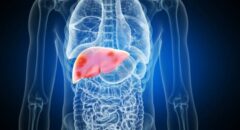
Want to be good to your liver? Pour yourself another cup o' joe.
British researchers report that coffee of all kinds may reduce your risk for chronic liver disease.
For the study researchers used U.K. Biobank data on nearly 500,000 people with "known coffee consumption" who were followed for a median of about 11 years. Median means half were followed longer, half for less time.
Seventy-eight percent drank ground or instant caffeinated or decaffeinated coffee, and 22% didn't drink any coffee.
Over the study period, 3,600 people developed chronic liver disease and 301 died.
More than 5,400 participants developed chronic liver disease or a build-up of fat in the liver known as fatty liver disease, and more than 180 developed liver cancer.
Compared with non-coffee drinkers, those who drank coffee had a 21% lower risk of chronic liver disease and a 20% lower risk of chronic or fatty liver disease. Their risk of dying from chronic liver disease fell 49%, researchers found.
Senior researcher Dr. Paul Roderick, a professor of public health at the University of Southampton. emphasizes that this study doesn't prove coffee prevents liver disease, only that there appears to be a link.
"One has to be careful in extrapolating from observational studies to say there is a causal relationship between coffee and liver disease," Roderick says. "Other attributes of coffee drinkers might be associated with liver disease risk, and we may not have taken these into account."
But the study does add to evidence that coffee is protective, despite the different chemical composition of various types, he adds.
How coffee protects the liver
What's not known is which ingredients in coffee may protect the liver, according to Roderick.
"Coffee is a complex substance, and we don't want to over-speculate on the different mechanisms," Roderick says.
He says it's not clear if coffee may prevent liver damage in the first place or instead its progression to more severe forms.
"Given the global scale of liver disease, this is an important area for research," Roderick adds.
RELATED: That Morning Cup of Coffee May Extend Your Life
Which coffee is best for your liver?
The biggest benefit was seen among devotees of ground coffee, which has high levels of kahweol and cafestol, natural chemical compounds from coffee beans. Both have been shown to protect against chronic liver disease in animals. However, instant coffee, which has low levels of kahweol and cafestol, also reduced the risk of chronic liver disease, according to researchers, implying that there may be a complex relationship between various ingredients in coffee.
Dr. David Bernstein, director of the Sandra Atlas Bass Center for Liver Diseases at Northwell Health in Manhasset, N.Y., says several studies have found coffee is good for the liver.
"But this is the first study to show that the effect was seen in both caffeinated and decaffeinated coffee drinkers and that ground coffee provided a greater benefit than instant coffee," he says.
While both caffeinated and decaffeinated coffee may provide benefits for your liver, liver specialist Jamile Wakim-Fleming, MD says much of coffee’s beneficial effects on the liver come from caffeine.
“You have to consume regular coffee — not decaf — daily to get the liver benefits,” Dr. Wakim-Fleming says. “There’s something inherent about caffeine that is helpful to the liver.”
Coffee also has other benefits on the liver, according to Dr. Wakim-Fleming. “Coffee contains antioxidants and other compounds that all play a big role in decreasing liver inflammation,” she adds.
How much coffee should you consume?
So how much coffee should you be consuming to reap its benefits?
“We recommend at least three cups every day to help prevent liver problems,” Dr. Wakim-Fleming shares. If you have hepatitis or fatty liver disease, as many as four, five or even six cups a day can be helpful.
However, before you go making your morning cup o' joe, talk to your doctor to ensure it is safe.
Coffee can trigger headaches, difficulty initiating sleep, anxiety and jitters in some people.
You should also be cautious of coffee if you have heart problems. If you have an irregular heart rate or other heart problems, excessive coffee might be dangerous. Coffee can also cause problems in lung cancer patients, according to the Cleveland Clinic.
Additionally, black coffee is best because people with fatty liver disease often have problems like diabetes and obesity; so it is wise to avoid adding extra fat and sugar to your coffee. If you don't like the taste of black coffee, you can swap sugar for artificial sweeteners and add skim milk or plant-based milk instead of cream.
RELATED: 5 Ways You Can Help Your Liver Regenerate
How to protect your liver
While drinking coffee may provide benefits to your liver, there are also other key things you can do to protect your liver:
- Get vaccinated against hepatitis A and hepatitis B viruses, which both damage the liver.
- Avoid eating a lot of high-sugar, high-saturated-fat foods, which can lead to fatty liver disease.
- Limit heavy alcohol drinking, which can permanently damage the liver and lead to cirrhosis.








